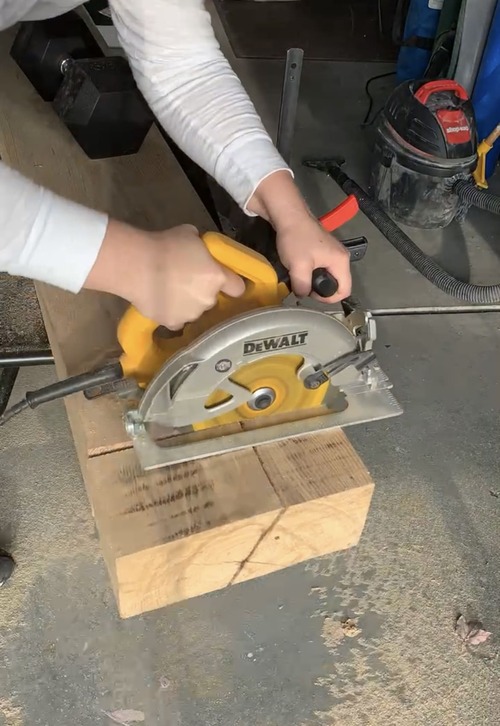
How to Cut thick wood with a Circular Saw can be one of the more challenging tasks in woodworking, requiring not just the right tools but also the right technique to achieve a clean, precise cut. While a table saw or a band saw might be the go-to choices for many, these tools aren’t always available or practical for every project.
That’s where the versatility of handheld circular saws come in. Despite its compact size, a circular saw can be just as effective in cutting thick wood, provided you set it up correctly and follow the proper steps.
Whether you’re building furniture, framing a structure, or simply making some home improvements. Mastering the use of a powerful tool like a circular saw for thick wood is an essential skill that will save you time, effort, and money.
This guide is designed to walk you through each step of the process, from choosing the right blade to making the perfect cut, ensuring that you can tackle even the most challenging woodworking tasks with confidence. With the right approach, cutting thick wood with a circular saw can be safe, efficient, and highly rewarding.
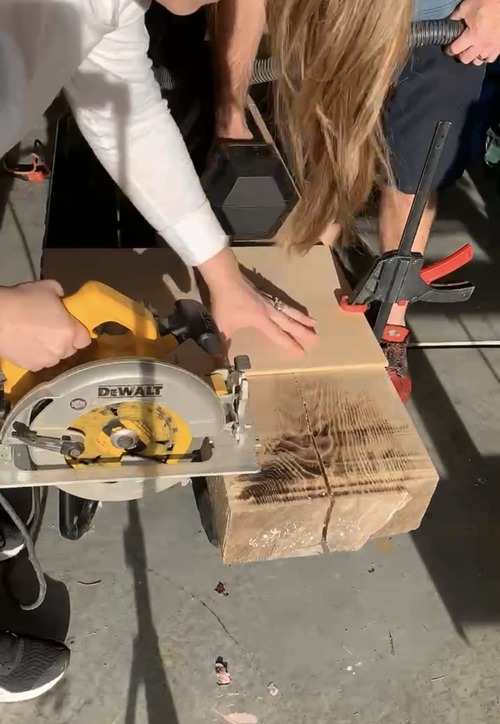


Tools You’ll Need to Cut Thick Wood with a Circular Saw
Before you begin, gather the following tools:
- Circular Saw: A powerful saw with a sharp blade designed for cutting thick wood.
- Rip Fence or Guide: To ensure straight, accurate cuts.
- Clamps: To secure the wood in place while cutting.
- Measuring Tape: For accurate measurements.
- Pencil or Marker: To mark your cutting line.
- Sawhorses or a Workbench: To support the wood while cutting.
- Safety Gear: Including safety glasses, ear protection, and gloves.
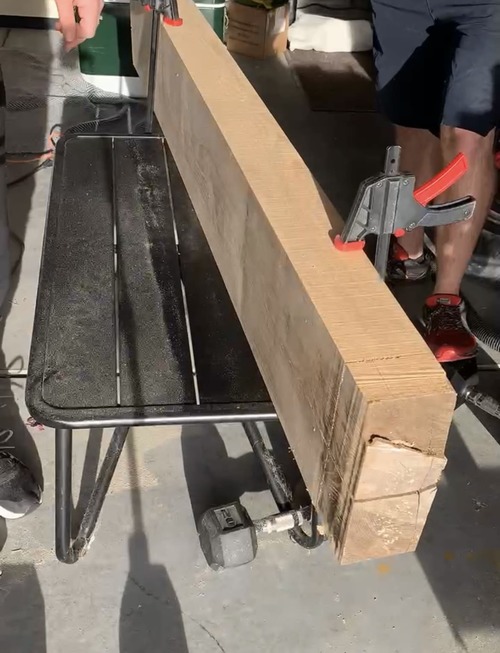

Step-by-Step Instructions to Cut Thick Wood with a Circular Saw
1. Choose the Right Blade
The first step in cutting thick wood with a circular saw is to ensure you have the right blade. A standard blade might struggle with thick wood, so consider using good blades with fewer teeth and a larger gullet. This type of blade is designed to remove more material with each single pass, making it ideal for thick wood and a smoother cut.
- Tip: A 24-tooth framing blade is a good choice for cutting thick wood as it provides a balance between speed and smoothness.
Shop Corded Circular Saw and Cordless Circular Saws Here


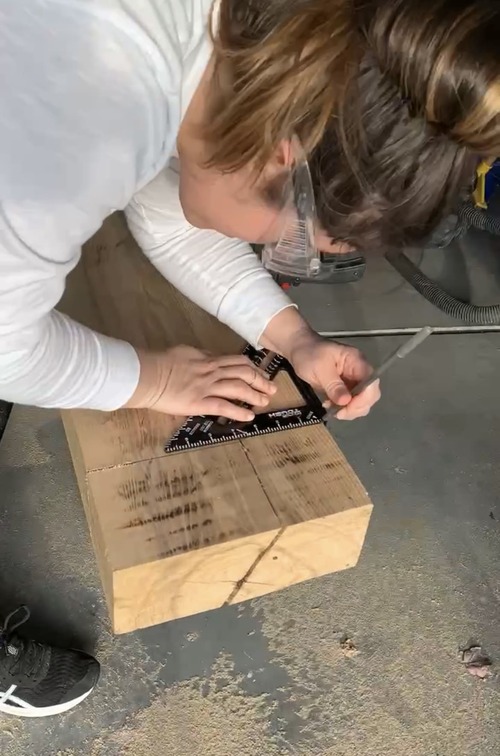
2. Measure and Mark Your Cutting Line
Accurate measurements are crucial when cutting thick wood. Use a measuring tape to determine the length you need and mark the cutting line with a pencil or marker.
- Tip: Use a straight edge or a carpenter’s square to ensure your cutting line is perfectly straight.
Shop Accurate Measuring Tools Here

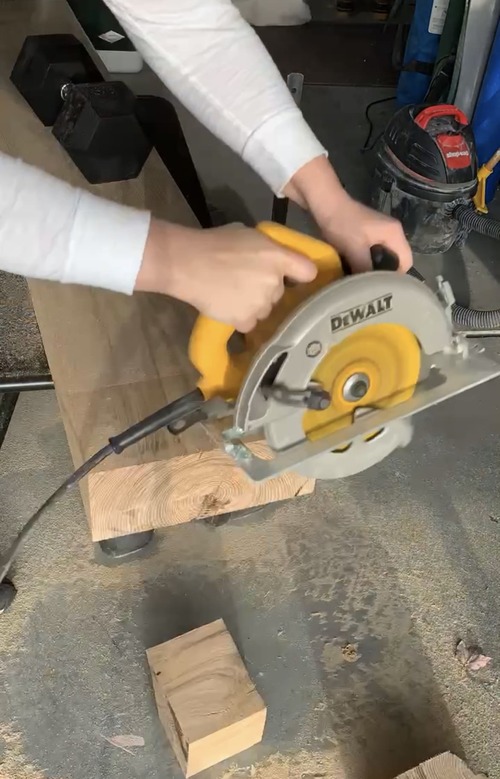
3. Set the Depth of the Blade
Adjust the depth of the circular saw blade so that it extends slightly (about 1/4 inch) below the thickness of the wood. This ensures a clean cut while minimizing the strain on the saw.
- Tip: Always unplug the saw before adjusting the blade depth to avoid accidental starts.
Shop Wood Cutting Blades Here
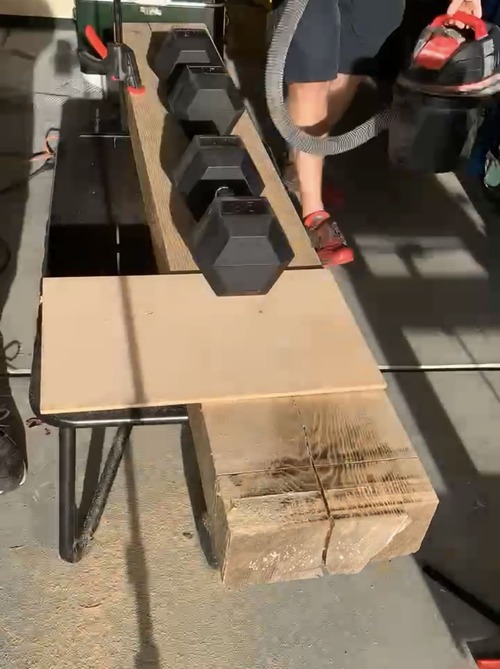


4. Secure the Wood
Before you start cutting, it’s essential to secure the wood to prevent it from moving during the cut. Use clamps to hold the wood in place on a stable work surface, such as a pair of saw horses or a workbench.
- Tip: Position the wood so that the cut line is just off the edge of the work surface, allowing the blade to pass through without hitting anything underneath.
Shop the Best Clamp Tools Here


5. Use a Rip Fence or Guide
For rip cuts and straighter cuts that are accurate, use a rip fence or a straight edge as a guide. This helps keep the saw aligned with the cutting line, preventing the blade from wandering.
- Tip: If you don’t have a rip fence, you can clamp a straight cut piece of wood to your work piece as a cutting guide for longer cuts and an accurate finish.
Shop Rip Cutting Tools Here

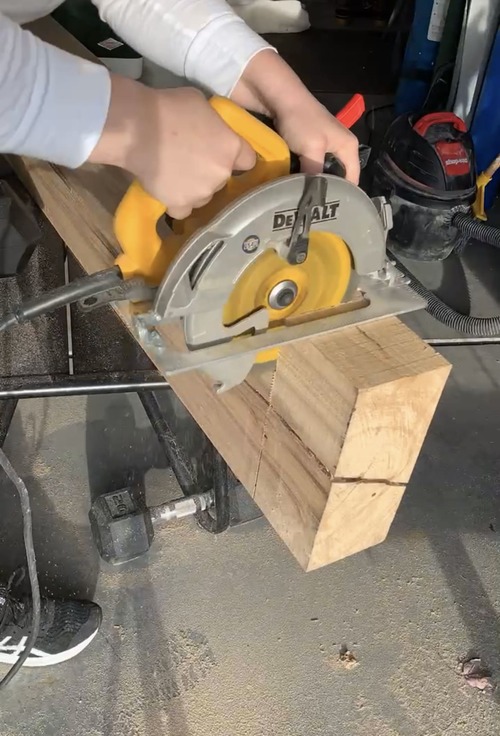

6. Make the Cut
With everything set up, you’re ready to make the cut. Start the saw and allow the blade to reach full speed before slowly guiding it along the cutting line. Let the saw do the work—don’t force it through the wood.
- Tip: If the wood is particularly thick, you may need to make multiple passes. Start with a shallow cut on the first pass, then gradually increase the depth adjustment with each pass until you cut through the entire thickness.
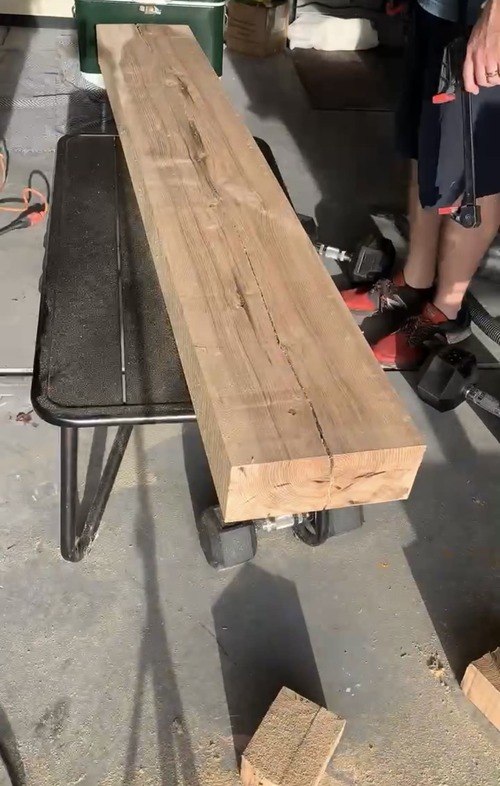
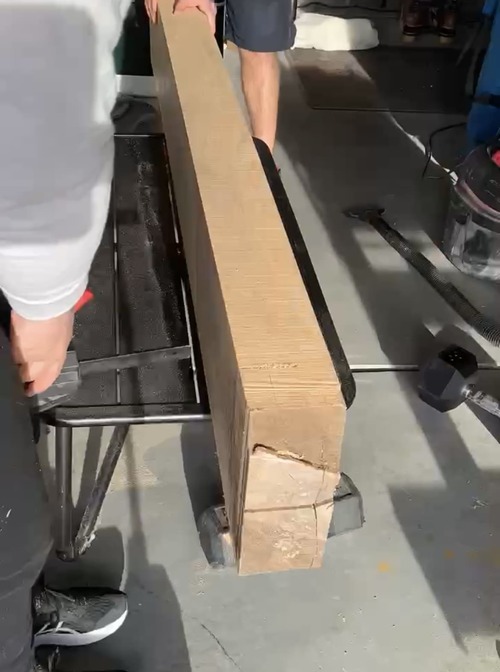
7. Check the Cut and Finish
After making the cut, inspect the edge to ensure it’s clean and even. If necessary, use a sander or file to smooth out any rough spots.
- Tip: If the wood has a lot of tear-out or rough edges, consider using a fine-tooth blade for a fine finish pass.
Common Mistakes to Avoid
- Using the Wrong Blade: A fine-tooth blade might seem like a good choice, but it can struggle with thick wood. Use a blade designed for ripping.
- Forcing the Saw: Let the saw’s motor and blade do the work. Forcing it can lead to uneven cuts and put unnecessary strain on the saw.
- Not Securing the Wood: Always clamp your work piece to prevent it from moving during the cut. Movement can lead to inaccurate cuts and potential injury.
PRO TIP #1: Know what kind of wood you are cutting. If it is a hardwood you will want to take your time and not rush your cuts. Rushing your cuts with cutting hardwood can cause a lot of friction in between your blade and wood. This could cause your tool to fail which could cause injury. Softer woods tend to cut faster and take less time to cut. This overall allows for less friction to build up and heat but still make sure to take your time and never rush any cuts.
PRO TIP #2: A track saw is another great option when you need to cut thick pieces of wood or long rip cuts. These saws tend to have a lot more safety features and saw guide systems that provide more accuracy for projects.
Cutting thick wood with a circular saw doesn’t have to be an intimidating task. By selecting the right tool, appropriate blade, securing your workpiece properly, and carefully following each step, you can achieve professional-level results without the need for more specialized equipment.
This skill not only expands your woodworking capabilities but also opens up a world of possibilities for future projects. Whether you’re a seasoned professional or a DIY enthusiast, mastering the art of using a circular saw to cut thick wood will prove invaluable.
Remember to always prioritize safety, double-check your measurements, and take your time to ensure each cut is precise. As you continue to practice and refine your technique, you’ll find that this once-daunting task becomes second nature.
If or when you decide to tackle a project involving thick wood, I’d love for you to tag us on Instagram so I can see your really fun recipes and DIY projects come to life!
COZY HOME, COZY RECIPES:
Every cozy home deserves amazing recipes, and it’s even better when those recipes are both delicious and healthy. Our goal is to provide tasty meals that are easy to make, regardless of your skill level.
Fast, easy meals leave more time for fun activities, making your home a hub of joy and good food.
CONNECT WITH US:
As always, we love hearing about your experiences with our “How to Cut Thick Wood with a Circular Saw: Step-by-Step Guide”. Reach out to us through our social channels. Any questions you have, we’re here to answer.
Stay updated by joining our newsletter, offering a monthly dose of new recipes and a first look at upcoming projects.
MORE COZY KITCHEN RECIPES:
If you’re hungry for more, explore our collection of Cozy Kitchen Recipes. Another healthy favorite is the “Sausage Potato Veggie Bake.” Find these recipes and more here.
DIY RESOURCES:
For additional resources, check out our DIY Tutorials, offering a wealth of information to enhance your home improvement skills.
